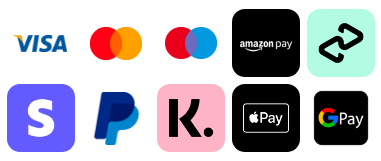We’ve all considered moving mobile phone manufacturers at some point – whether that’s because we’re tired of our old models or because we’ve heard so much about how great “the other side” is. The most common switch is from iPhone to Android, with even some of the most fanatic Apple fans making the change in the past.
Some users find the prospect of a new device too alluring, with the Google Pixel and Galaxy Z Flip ranges causing a swathe of switches over the past few years.
But what does switching from iPhone to Android actually mean? Can switching operating systems be stressful or soothing? Find out more, including everything you should consider when you’re switching from Apple to Android in our guide.
What will I miss switching from iPhone to Android?
The honest answer is likely not much – and there’s not too much that is different between the two manufacturers and their operating systems. Android and iOS actually have a fair bit in common.
In the past, iPhone users missed out when it came to customisation of their personal devices, but the introduction of the iOS Widgetsmith app fixed any issues there.
The main things you’ll miss are the array of Apple apps that you are so used to enjoying, like iMessage and Facetime. If you’ve subscribed to apps like Apple TV, Apple Music and Apple Fitness, even though Android has its equivalents, it may be hard to let these go.
You may also miss pairing several of your Apple accessories with your phone – things like AirPods, wireless chargers and more won’t be a regular part of your technology ecosystem (although AirPods can connect to Android phones without access to a few features).
The advantages of switching from iPhone to Android
There are a range of benefits to switching operating systems for those who are considering making the leap, such as:
More choice for apps and games
Apple operate a walled garden approach, making things harder for both consumers and developers when it comes to the App Store. Android offers flexibility that the iPhone does not, allowing users to easily install apps from a number of sources.
Flexible storage options
There are a number of Android phones that allow expandable storage through the use of microSD cards, meaning users can increase their phone’s storage capacity easily and without huge cost.
One cable – and with faster charging speeds
The vast majority of Android phones and even modern technologies use USB-C chargers and ports – meaning with one single cable you’re able to provide power to all of your devices. There’s also faster charging speeds through USB-C too.
Make more of your technology ecosystem
Not every iPhone owner is able to afford an Apple smart watch or a MacBook laptop – meaning their technology ecosystem isn’t able to pair as well as it would when an Android’s owner owns a Microsoft Windows PC. That’s not to say syncing an iPhone with a Windows PC is impossible, but it’s not as easy.
Switching from Apple to Android couldn’t be easier with 4gadgets
If you’ve made the decision to switch from iPhone to Android, then doing so couldn’t be easier with 4gadgets. Instead of purchasing a brand-new device and having an impact on your wallet and the planet, finding a refurbished Android phone at 4gadgets can help to reduce cost and harmful e-waste.
Whether you’re moving mobile manufacturers or sticking it out with Apple, we’ve got a range of models available for you to peruse.
Find a device that suits you? Order before 3pm Monday to Friday to make the most of Free Next Day Delivery.


